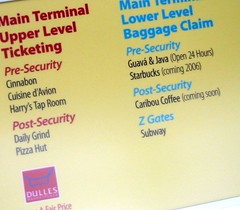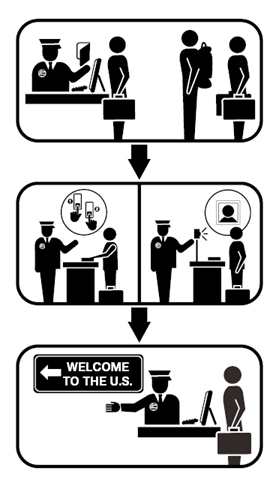 I have often suggested that Eric Rudolph, who for five years successfully evaded the largest federal manhunt in U.S. history–until he surrendered himself to a rookie sheriff’s deputy in the alley behind a local supermarket, exemplifies the modern fugitive. The fugitive summons forth the great machinery of government: scores of armed agents, ballistic tests and DNA samples, barking dogs, search ‘copters, infrared flybys. And as he eludes it all, he becomes legendary, a folk hero. No matter how heinous his crimes, the figure of the fugitive is alluring. Alluring, because a lone figure trumps the power of the state. Alluring, because he just disappears. And that is something that is increasingly impossible in today’s world.
I have often suggested that Eric Rudolph, who for five years successfully evaded the largest federal manhunt in U.S. history–until he surrendered himself to a rookie sheriff’s deputy in the alley behind a local supermarket, exemplifies the modern fugitive. The fugitive summons forth the great machinery of government: scores of armed agents, ballistic tests and DNA samples, barking dogs, search ‘copters, infrared flybys. And as he eludes it all, he becomes legendary, a folk hero. No matter how heinous his crimes, the figure of the fugitive is alluring. Alluring, because a lone figure trumps the power of the state. Alluring, because he just disappears. And that is something that is increasingly impossible in today’s world.
Given my interest in Rudolph, I devoured Maryanne Vollers recent journalistic account of the lengthy Rudolph investigation, Lone Wolf: Eric Rudolph: Murder, Myth, and the Pursuit of an American Outlaw. Vollers incorporates hundreds of sources, including conversations with many of the lead investigators, Rudolph’s family, and written interviews with Rudolph himself. The book is enlightening in many ways, especially Vollers’ behind-the-scenes descriptions of the ego battles and in-fighting between government agencies, some of which probably contributed to Rudolph’s initial escape into the mountains of western North Carolina.
Vollers’ account is riveting, in part because it reads like a police procedural–an extended episode of Law & Order. However, this blow-by-blow treatment of the Rudolph investigation and trial contributes to the book’s greatest weakness, which is its light treatment of Rudolph’s life on the lam. So focused on the state and federal investigation into Rudolph’s crimes, the book pays short shrift to the Rudolph’s actual experiences on the run. For the most part, the reader concludes Lone Wolf without knowing how Rudolph spent his five years of fugitivity.
We do learn how Rudolph survived, nutritionally-speaking, and these daily acts–eating ground salamander bones, scrounging from Taco Bell dumpsters–should disabuse us of the glamour of life on the lam, but in fact, we learn little about the larger strategies of escape and evasion in the mountains. What about the close calls with the tracking dogs, the sleepless nights slipping past hunters, the breathless chases across ravines and gorges? About these moments of the manhunt, Rudolph has remained silent. Perhaps these dramatic twists, so fitting for a Hollywood blockbuster, never happened. Perhaps they did. Rudolph does not say, and so Vollers cannot say. In this way, Rudolph’s aura as a fugitive sustains itself and outlives his actual fugitive life. The mystery of his long disappearance lingers. “Where I’m hidden, they’ll never find me,” Rudolph reportedly told George Nordmann in the only confirmed sighting of Rudolph during the entire manhunt, six months into his life on the run. Indeed, though Rudolph later let himself be found, the fugitive is still hidden.

 Rudolph, seen here in a composite FBI sketch, reportedly told a man in July 1998 — when Rudolph emerged briefly for a day before disappearing again for another five years — that “Where I’m hidden, they’ll never find me.”
Rudolph, seen here in a composite FBI sketch, reportedly told a man in July 1998 — when Rudolph emerged briefly for a day before disappearing again for another five years — that “Where I’m hidden, they’ll never find me.”